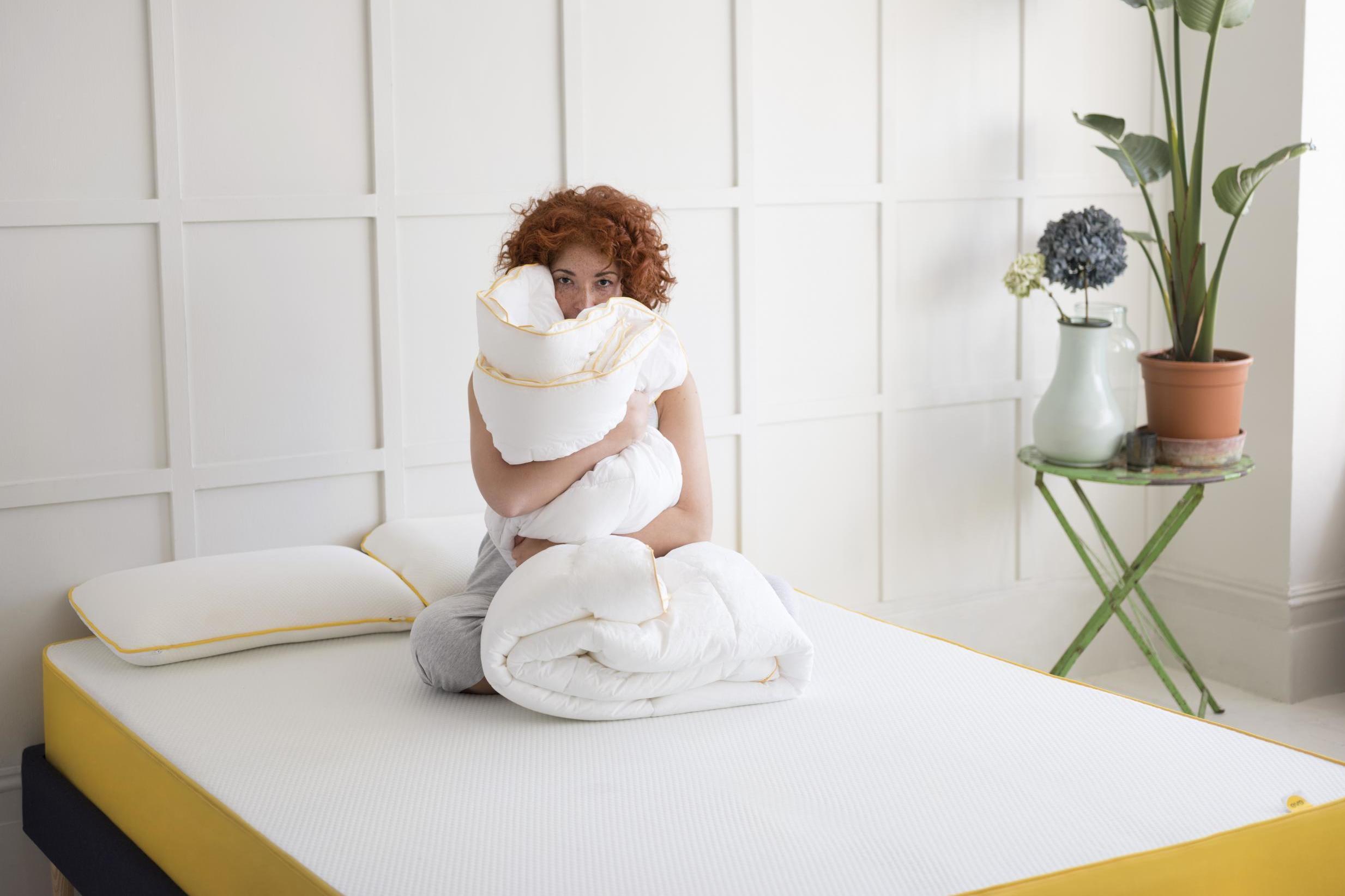The Independent's journalism is supported by our readers. When you purchase through links on our site, we may earn commission.
Could hitting the snooze button be bad for your health?
Repeatedly shocking our brain awake is damaging our mental health, eve sleep’s Refuse to Snooze report uncovers

How often every morning do you hit the snooze button on your phone alarm? Once, twice, three times a morning? Timely news for Mental Health Awareness Week in the UK, a recent report by eve sleep shows that 82% of Brits are in the habit of snoozing at least once*. Have you ever considered what this ritual – the repeated "shocking" of your brain into consciousness – might be doing to it? What the effects on your overall mental health might be?
Sleep-wellness brand eve sleep certainly have – they commissioned 'Refuse to Snooze', a report authored by mental health and neuroscience expert Matt Janes, and Michael Banissy, co-director of the Sleep Lab at Goldsmiths Psychology department. What their research uncovered was nothing short of, well, alarming. “It is clear from the report that the snooze button is having a negative impact on the mornings of over 80 per cent of Brits," says James Sturrock, CEO of eve sleep. “That’s why we’re taking on the snooze button with our Refuse To Snooze campaign, as we believe that everyone deserves the perfect start to their morning,” he adds.
Tackling stress levels
“Modern lifestyles have created unprecedented levels of stress,” says report co-author Matt Janes. “Our brain and body cannot cope with the assault and they’re breaking. If we examine what’s happening to [our] physiology during this assault, we uncover an answer to the UK’s mental health crisis.”

As the report explains, our autonomic nervous system controls all physiological and biochemical processes in our bodies – from respiration to cardiovascular functions and digestion. This system consists of two branches: the sympathetic and parasympathetic, which work in tandem with one another.
“We all fall into one of three autonomic types,” Janes explains, “sympathetic dominant, parasympathetic dominant or balanced metaboliser. The first of these three groups, the sympathetic dominants, are most at risk from anxiety and agitated depression, and get pushed further out of balance with increased stress load. For this group, pressing the snooze button invites more stress to an already overloaded system.”
The negative effects of snoozing can also be felt by parasympathetic dominants, who naturally have weak sympathetic systems and are prone to melancholic depression when subjected to repeated stressors, such as a snooze alarm.
How to sleep better
eve sleep argue we need to banish our snoozing habit. To do this, we must negate our desire to do it in the first place, and this means ensuring we get a good night’s sleep every night. To set this up, an excellent sleeping environment is paramount and key to this is obviously, a comfortable bed. Are we sleeping on the right mattress, we need to ask ourselves? Might we need to upgrade to a memory foam or a hybrid, a natural or a spring option? And what about our pillows? Could we benefit from foam models or those with microfibre support?

Combine a good sleeping environment with excellent nutrition throughout the day and exercise, plus getting to bed at a reasonable hour, and we should be on the road to achieving a good night’s sleep that leaves us feeling refreshed and raring to go come morning time, with no need whatsoever to snooze.
Think you might need a touch more help? Why not replace your snooze with something else, like a nine-minute episode of the Refuse to Snooze podcast with Andi Peters? In a five-part series, each episode explores engaging topics from relationships to parenting, and features discussions with guests such as model and philanthropist Katie Piper. Listen first thing (instead of pressing that snooze button) to start your day the healthy way.
For more information on eve sleep’s Refuse to Snooze campaign, and how you can create your dream sleeping environment, visit evesleep.co.uk/refusetosnooze
*eve sleep commissioned research by OnePoll. Sample size - 2000 correspondents

Bookmark popover
Removed from bookmarks